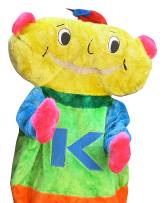Beginner Bikers
Ages 4 to 7 years
Beginner Bikers
Learning to ride a bike is an exciting milestone in a child's life. It is a skill that not only brings joy and a sense of freedom but also contributes to their overall development. Riding a bike requires a combination of physical, cognitive, and emotional skills, making it a valuable activity for children. In addition to enjoying the initial thrill of riding the bike, there are many developmental benefits to this fun activity.
Gross Motor Skills
Learning to ride a bike involves the development of gross motor skills, which are essential for everyday movements and physical activities. Riding a bike requires coordination between the legs, arms, and core muscles to pedal, steer, and maintain balance. As children practice riding, they strengthen their muscles, improve their balance, and enhance their overall coordination.
Spatial Awareness
Riding a bike requires an understanding of spatial awareness – the ability to perceive and navigate through the surrounding environment. Children learn to judge distances, anticipate obstacles, and make quick decisions to avoid collisions.
Confidence and Self-Esteem
Mastering the skill of riding a bike can significantly boost a child's confidence and self-esteem. As they overcome the initial fear and challenges, they gain a sense of accomplishment and pride in their abilities. Riding a bike allows children to push their limits, take risks, and experience success, which contributes to their overall self-confidence.
Every Tuesday, the children practise the key elements of bike riding on the roof, from the initial task of balancing on the bike, creating movement and motion, and maintaining control and balance. As they develop their confidence on the bikes, more challenging courses will be arranged for them to navigate bends, corners, and frequent stops and starts.
Happy riding, everyone!


